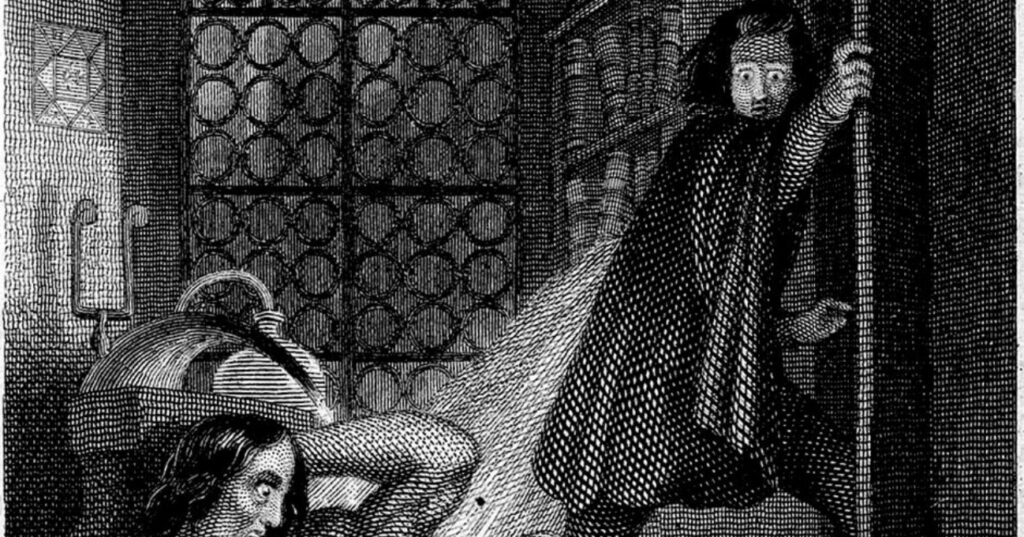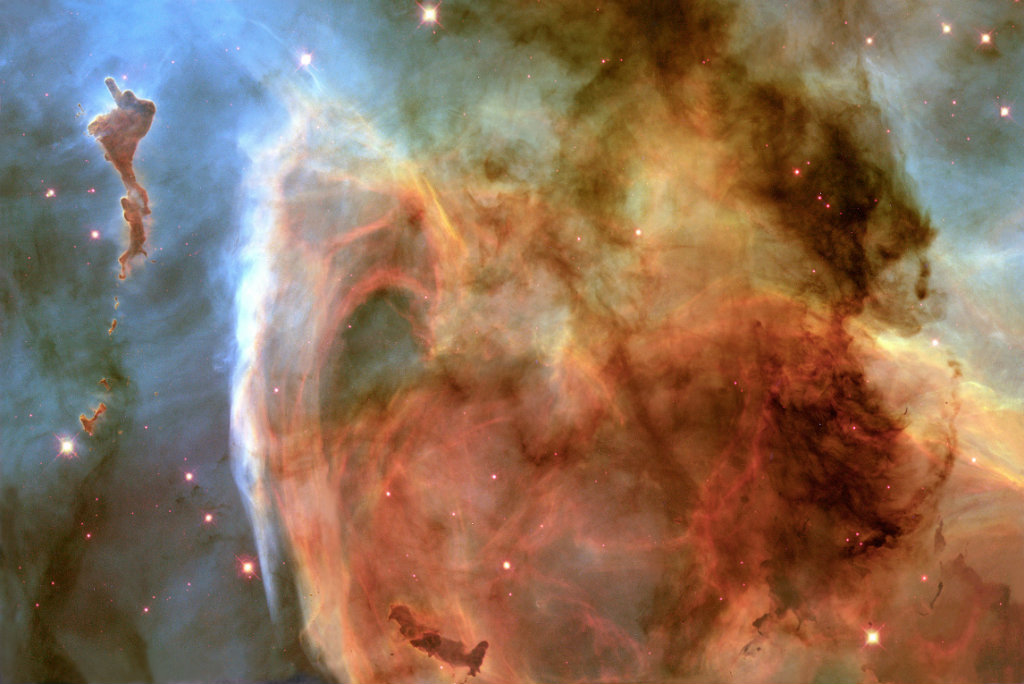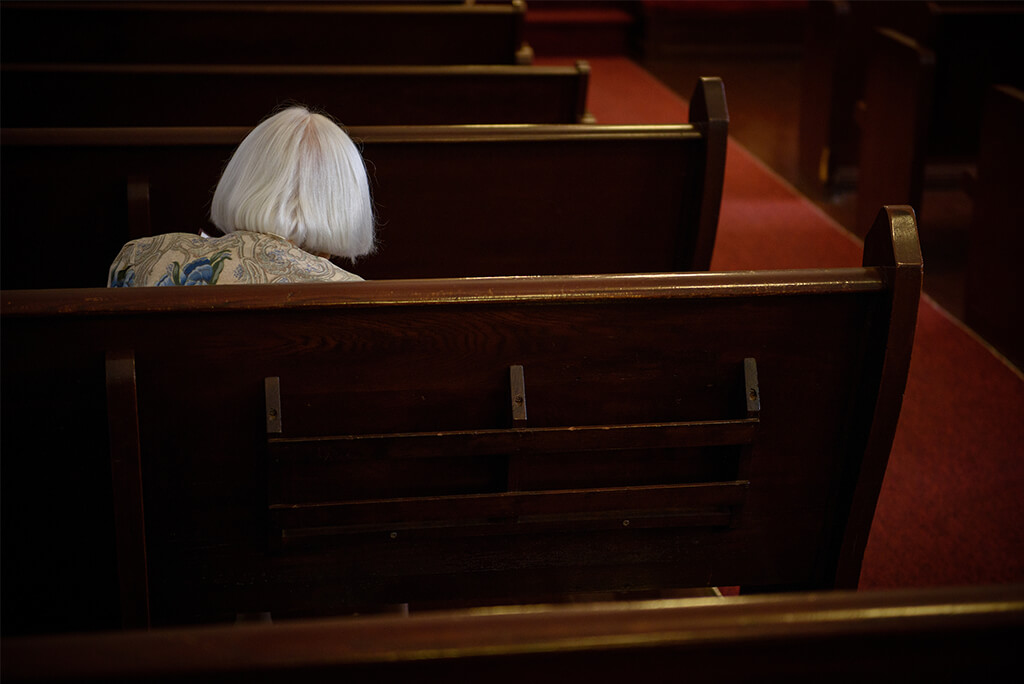A literary reflection by Josh Pauling on Mary Shelley's "Frankenstein." This is one installment of a monthly series providing reflections on works of literature from a Lutheran perspective.
Despite what Hollywood and pop culture might lead you to believe, Mary Shelley’s 1818 novel Frankenstein is not primarily a horror story. Nor is Frankenstein the name of the scary green monster seen in many film adaptations of the book. Rather, Frankenstein is the last name of the main character, Victor, who is consumed by the dream of fusing science, technology and alchemy to forge new life. “I will pioneer a new way, explore unknown powers,” he exclaims, “and unfold to the world the deepest mysteries of creation.”
Frankenstein’s single-minded vision leads him through a winding trail of research, secrecy and experimentation that culminates in his successful construction of a living being. But far from being the pinnacle of achievement for which Frankenstein had hoped, he despises what he has made. This causes a cascading effect of dissolution and destruction in his personal life and the lives of others that drives the rest of the novel.
Certainly, pride and the dangers of transcending human limitations through technology are some of the novel’s major themes. But tying all the novel’s threads and storylines together are questions of community and belonging. It turns out that Frankenstein’s creature is just lonely. He longs for companionship but instead only finds alienation at the hands of his creator and the world of humans. We are designed for multi-dimensional communion with our Creator and fellow creatures. “The wretch,” as Frankenstein calls him, longs for both and is denied both, which drives him and his creator toward tragic ends.
Alienation from the Creator
When Frankenstein sets out to fashion new life by his own hands, he is exhilarated by the praise and prowess it could bring him. “A new species would bless me as its creator and source,” he muses, and “many happy and excellent natures would owe their being to me.” Frankenstein falls for that perennial temptation of the dragon that “you will be like God” (Gen. 3:5).
Here we find a sharp contrast between Frankenstein’s personal power trip of self-worship and the true creation story and its loving Creator. The Trinity, pulsing with love, communion and relationship, is the beating heart of the universe, a God who overflows in the creation of humanity so that He can give Himself to us and bring us into His divine love and life. In contrast, Frankenstein recoils at his creation, calling him a wretch, a devil and a fiend. Consumed with the horrors of his handiwork, Frankenstein falls into deep angst and personal breakdown, regretting that “the form of the monster on whom I had bestowed existence was forever before my eyes.” He even acknowledges his pride, saying that the wretch is “the living monument of presumption and rash ignorance which I had let loose upon the world.”
It seems that the only way for Frankenstein to recover mentally and physically is by ignoring his creation. Yet this is a false dream. He is not free from the wretch, whose desire for communion with his creator is so strong that he follows Frankenstein across Europe and confronts him: “You, my creator, detest and spurn me, thy creature, to whom thou art bound by ties only dissoluble by the annihilation of one of us.” The wretch has a plan to bring about the happiness of both he and his creator, and begs Frankenstein to hear him out with this ultimatum: “If you will comply with my conditions, I will leave … you at peace; but if you refuse, I will glut the maw of death, until it be satiated with the blood of your remaining friends.” Frankenstein agrees to hear his creature’s story as he feels a tinge of conscience for the alienation he has caused and “for the first time … felt what the duties of a creator towards his creature were.”
Alienation from fellow creatures
As the creature recounts his experiences, it becomes clear that he desires not only to be loved by the one who made him, but to be loved by fellow creatures — especially a mate. The wretch has stalked Frankenstein far and wide because he longs for communion with his creator and companionship with an equal. Frankenstein listens to a beautiful narrative of how the wretch, upon being abandoned by his creator, spent his time wandering and hiding, all the while secretly observing humans as much as possible. He eventually taught himself to read and write by listening to humans and getting access to some classic books, including Milton’s Paradise Lost, which provided him with a framework for describing his condition as that of Adam needing an Eve.
Like Adam, I was apparently united by no link to any other being in existence; but his state was far different from mine in every other respect. He had come forth from the hands of God a perfect creature, happy and prosperous, guarded by the especial care of his Creator; he was allowed to converse with and acquire knowledge from beings of a superior nature, but I was wretched, helpless, and alone. … No Eve soothed my sorrows or shared my thoughts; I was alone. I remembered Adam’s supplication to his Creator. But where was mine?
The wretch implores his creator, “Remember that I am thy creature. I ought to be thy Adam, but I am rather the fallen angel, whom thou drivest from joy for no misdeed.” The wretch’s pleading comes to a crescendo with this request: “You must create a female for me with whom I can live in the interchange of those sympathies necessary for my being.” Again, Frankenstein is affected by the condition of his creature and agrees to create a female creature to alleviate the alienation the wretch is experiencing.
Alienation leads to destruction, communion leads to life
Despite their pact, Frankenstein eventually forsakes his promise to create a mate for the creature, which unleashes a new round of the wretch’s revenge. As those around Frankenstein die at the hands of the wretch, both creature and creator are driven further to despair and destruction in a one-on-one showdown and manhunt that spans the European continent. Ultimately, both of their lives end essentially alone, as they are consumed and destroyed by the lack of communion between creator and creature, and the lack of relationship between creatures. Frankenstein is a tragic picture of what happens when we don’t live according to our relational design.
The God of the universe has designed us for multi-dimensional relationship and love with Himself (the vertical dimension) and with one another (the horizontal dimension). This love pours forth freely among the three persons of the Trinity and then generously overflows to all of humanity and all of creation. Such extravagant love could not be contained within God; it poured forth in creation, it pours forth in redemption, and it will pour forth in the restoration of all things.
Such communion with God and His creation is our destiny. God did not make us and then leave us alone. Jesus did not come into the world so we could download some new information about God. He did not come to complete a business transaction or give us a get-out-of-jail-free card. He comes in the flesh to restore that true communion we are designed for in mind, body and soul. He forgives our disordered attempts to seek communion with sin, evil and everything else but God. He heals the fractured relationship between God and man, heaven and earth, body and soul. This is Jesus’ prayer for us in John 17:21: “that they may all be one, just as You, Father, are in me, and I in You, that they also may be in us.”
We are brought into this union with God through His Word and Sacraments which create and sustain faith. We are baptized into Christ; in the Supper His body and blood are placed into ours. Christ’s resurrection body becomes one with us. Christ’s redemptive work for us in Word and Sacrament is a guarantee of the coming resurrection where we will find pure joy, all love, perfect freedom, and full communion with the Holy Trinity and one another. And all of it is because the triune God, who is love, loves us with an eternal love — as Jesus prayed to the Father, “that the love with which You have loved me may be in them, and I in them” (John 17:26).
Cover image: “Victor Frankenstein observing the first stirrings of his creature,” engraving by W. Chevalier after Th. von Holst, 1831.





Thank you for this post Mr. Pauling.
As I have contemplated the life of the ‘creature’ or ‘wretch’, a tragedy he was not even afforded a name, I believe what Mrs. Shelley was attempting to convey was that despite God providing him with sustenance, intelligence, curiosity, etc. his life was not worth living without being able to love or be loved by others. Assuming God would still provide and care for the creation of his creation which I believe He would.
This is a real situation for many human beings alive today and no doubt at the time the story was written. If you have never experienced what it is like to be shunned and discarded for the way that you look alone, especially by the opposite sex, you will never understand the hopelessness that ensues despite the love and hope provided through suffering and perseverance by the Holy Spirit. Who are we to question God’s reasons for creating as He does? The Word says some are made for special purposes, but living a life forced to abscond from the hatred of human beings, leaves one with slim alternatives to destruction or to fulfill a purpose other than serve as an example of pity and fear. Many have told similar stories, none have yet to imbed their lesson into the hearts of mankind. Hope remains a distant fantasy for those created to live this way.
Sartre had it wrong when he stated that “hell is other people;” rather, speaking in the same strictly literary vernacular, it’s their absence in the life of one born to relate. When both Victor and his ‘Adam’ set their ultimate course, through both cowardice and carnage, they embody different flavors of devastating consequences that bring out the genuine horror in Shelley’s work.
RE: “We are brought into this union with God through His Word and Sacraments which create and sustain faith.”
In this regard, I think it’s important to acknowledge the Holy Spirit by name with gratitude and praise. For “no one can say ‘Jesus is Lord’ except in the Holy Spirit” (1 Cor. 12:3 ESV).
It is by the Holy Spirit that the sowing of the Word produces fruit (Matt. 13:1-9, 18-23; Gal. 5:22-23) and we are sustained in this saving faith (John 14:16, 26).
Luther’s explanation of the third article of the Apostles’ Creed also comes to mind.